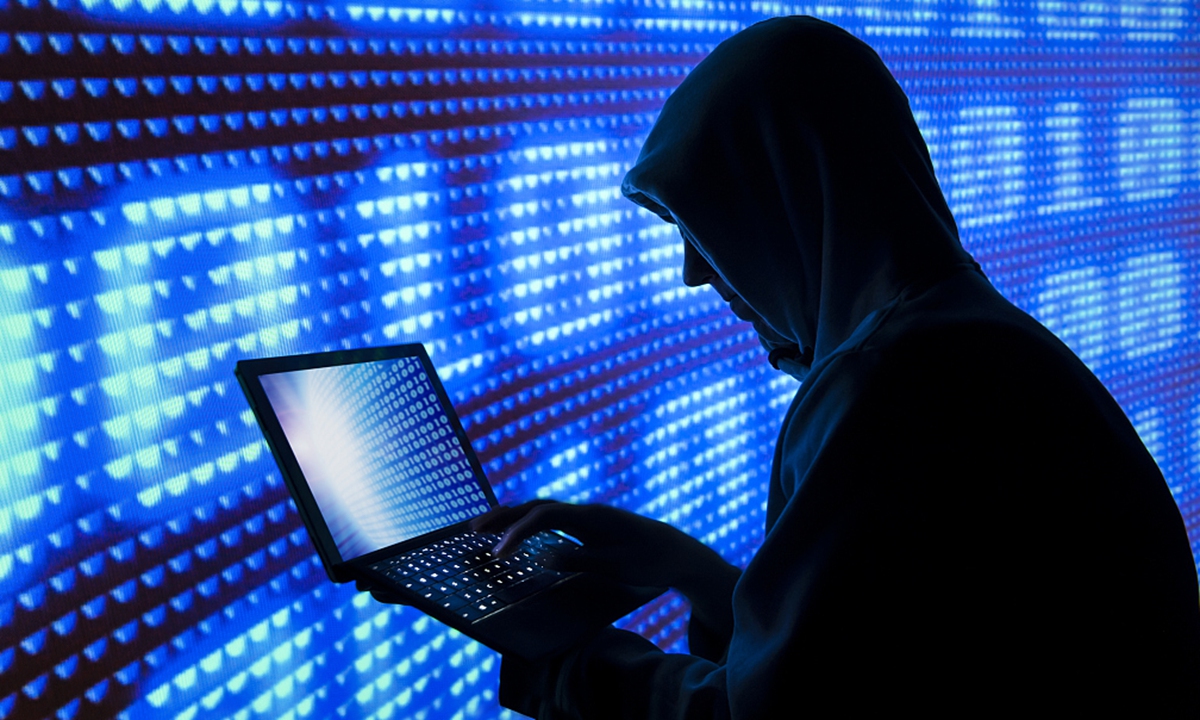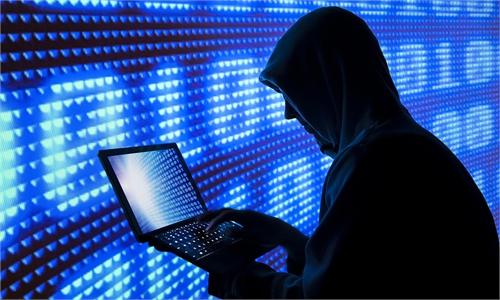China to impose severe punishment on crimes of cyberbullying, defamation offenses, fabricating sexual topics

cyber attack Photo:VCG
China on Monday released guidelines to severely punish cyberspace violations that target minors, involve paid posters, fabricate “sexual” topics and use artificial intelligence to disseminate illegal information.
The guidelines on punishing crimes of cyberspace violence in accordance with laws were jointly issued by China’s Supreme People’s Court, China’s Supreme People’s Procuratorate and China’s Ministry of Public Security. It stipulates that procuratorial organs should file public prosecutions against criminal acts of insult or slander that seriously endanger social order and national interests, and initiate public welfare prosecutions against cyberspace violence that harms social and public interests in accordance with the laws.
Different forms of cyberspace violence will be convicted of crimes such as defamation, insult, infringement upon citizens’ personal information.
According to the guidelines, five violations and criminal offences related to cyberspace violence will be punished severely. Such cases include cyberspace violence targeting minors or the disabled, organizing troll armies or network hatchet men, fabricating “sexual” topics to infringe upon others dignity, using “deep synthesis” and other generative artificial intelligence (Generative AI) technologies to disseminate illegal information, as well as cyberspace violence initiated or organized by internet service providers.
The guidelines demand that the spirit of strict punishment should be reflected in the punishment on illegal and criminal activities of cyberspace violence. The crackdown will be focused on malicious initiators, organizers, malicious promoters and repeat indoctrinators.
The guidelines also pointed out penalties for those who use internet users’ public accounts or other means to create feeds or spread information related to cyberspace violence for the purpose of piggybacking on hot topics or promoting material that violates the provisions of the criminal law. Such people can be punished for the crime of illegal use of information networks.
Meanwhile, network service providers who fail to fulfill their obligations for managing the information network security in accordance with the laws regarding information related to online violence that they discover, refuse to take corrective measures as ordered by regulatory authorities, which results in widespread dissemination of illegal information or has other serious circumstances, they can be convicted and punished for the crime of refusing to fulfill information network security management obligations.
On Monday afternoon, court hearing on civil action against cyberbullying the “twice abandoned” 17-year-old teenager Liu Xuezhou, who committed suicide, was held at Beijing Internet Court.
Several internet influencers were accused of fabricating information and wantonly making defamatory statements to comment on Liu, which became the last straw which broke Liu’s spirit before he took his own life at a beach in Sanya, South China’s Hainan Province, on January 24, 2022.
According to Zhou Zhaocheng, lawyer representing Liu, after Liu died, they found more than 2,000 online cyberbullying comments against Liu.
Among the defendants of the civil action there included internet influencers who have over 1 million followers and livestreamers of trending events.
Zhou told the Global Times on Monday that 42 groups of evidence were provided to the court to prove that the defendants took advantage of their identities as internet influencers to fabricate misinformation, and Liu was subjected to a barrage of cyberattacks such as slandering him that he asked for property from his biological parents and abandoned his adoptive parents, which eventually led to his suicide.
The defendants infringed upon Liu’s rights and interests and should be held accountable for Liu’ death, Zhou said.
During the court hearing, the defendants argued that they did not fabricate the information but cited media reports. However, plaintiff noted that the internet influencers should have fulfilled the duty of prudent disclosure of information since Liu had already pointed out the misinformation of media reports on his social media, Zhou told the Global Times
The court will announce a verdict soon.



